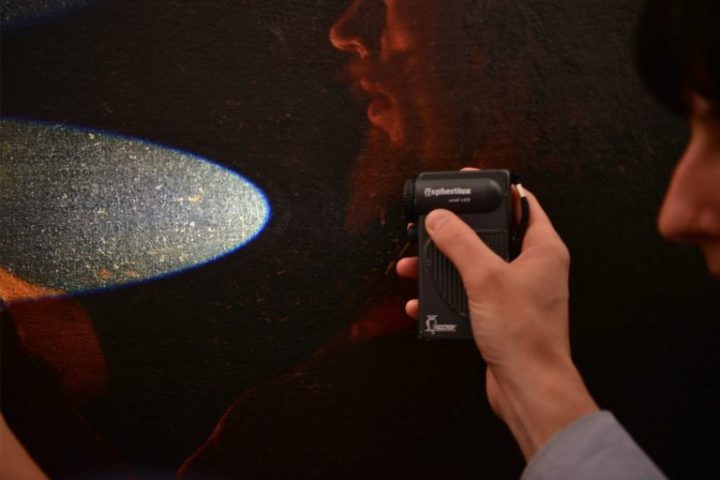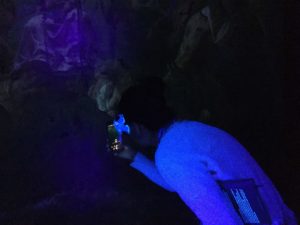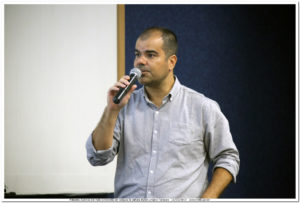August 23, 2024
CIDOC WEBINAR SERIES “Documenting is conserving” News

CIDOC, ICOM-CC, ICOM Georgia, and the Mexican Board of Conservation, MMC- ICOM Mexico, reach out to the ICOM community to discuss and to gather experiences of best practice in the field of heritage documentation by organising a series of webinars with documentation experts and engaging with museum professionals.
Series: Documenting is conserving
The next CIDOC webinar series aims to present best practices about the documentation of collections in museums. During three virtual sessions, we will discuss aspects of vocabulary, data management and current information systems for documenting objects and the processes of research and conservation will be addressed.
This series focuses on Ibero-American conservators in order to offer a platform for dialogue, exchange and proposals for documentation for and from the conservation of collections. Therefore, sessions will be in Spanish and English.
Sessions
- 9 September, General aspects of Vocabulary (in Spanish)
- 21 October, Managing the data (in Spanish)
- 18 November, Current information systems: linking the data (in English)
Webinars will take place via Zoom from 16.00 to 17.00 CET (9.00 am GMT-6).
Registration for each session will be enabled as soon as the date approaches.

General aspects of Vocabulary
Monday 9 September (session in Spanish)
Claudio Molina Salinas Instituto de Investigaciones Estéticas, UNAM
Claudio Molina Salinas, doctor in linguistics from the Universidad Nacional Autónoma de México. His research interests are related to the study and description of heritage terminology, specialised lexicography (terminography) and documentary languages. He is currently a researcher at the Instituto de Investigaciones Estéticas, UNAM.
Session description:
By adhering to CIDOC’s standards and using correct vocabulary, museums can ensure that their documentation is reliable, consistent, and valuable for a wide range of uses, from daily operations to international research collaborations. In the context of globalisation, there is a growing tendency to use the same language, predominantly English, in museum documentation and communication. This trend facilitates international collaboration, data sharing, and accessibility, as English serves as a common linguistic bridge among diverse cultural institutions. However, it also raises concerns about the potential erosion of local languages and the rich, nuanced descriptions they offer. Specialists from Ibero-American countries face specific challenges when it comes to vocabulary.
This session will focus on addressing these vocabulary challenges, exploring solutions to improve documentation practices, and fostering a deeper understanding of cultural heritage conservation in Ibero-American countries.
Managing the data
Monday 21 October (session in Spanish)
Elva Peniche Montfort Curator of Documentary Collections, MUAC
Researcher, teacher, archivist and curator. Her main interest is the intersections between artistic practices and archives. She currently serves as Chief Curator of Documentary Collections at the Arkheia Documentation Center at MUAC. She has a degree in history, is a teacher and is a PhD intern in art history at UNAM.
Alejandra Lechuga Álvarez Chef Conservator, MUAC
Chief Conservator of the University Museum of Contemporary Art (MUAC, UNAM). She completed a bachelor’s degree in Restoration at the National School of Conservation, Restoration and Museography (ENCRyM) from National Institute of Anthropology and History (INAH), specialising in modern and contemporary art and holds a Master’s Degree in Arts from the University of Warwick in International Cultural Policy and Administration, specialising in sustainability applied to the creative and cultural industries.
Session description:
Effective data management is crucial for conservators and researchers involved in the documentation of museum objects. Proper data management ensures the accuracy, consistency, and reliability of information about artefacts, which is essential for making informed decisions regarding their care and conservation. By maintaining detailed and organised records, conservators can track the condition of objects over time, identify trends in deterioration, and develop targeted conservation strategies.
This session will explore methods for integrating comprehensive data management into conservation workflows, ensuring that all relevant information is systematically recorded and utilised effectively. We will explore methods for integrating comprehensive data management into the workflows, leading to improved documentation quality and more effective conservation practices.
Current information systems: linking the data
Monday 18 November (in English)
Dalton Lopes Martins Professor of Library Science, University of Brasília
 Professor of Library Science and the Postgraduate Program in Information Science at the Faculty of Information Science at the University of Brasília. Currently at the Brazilian Institute of Museums and a permanent professor in the Postgraduate Program in Studies of the Human Condition (PPGECH) at the Federal University of São Carlos.
Professor of Library Science and the Postgraduate Program in Information Science at the Faculty of Information Science at the University of Brasília. Currently at the Brazilian Institute of Museums and a permanent professor in the Postgraduate Program in Studies of the Human Condition (PPGECH) at the Federal University of São Carlos.
Coordinates the Tainacan research project – free software for the social construction of digital repositories – in partnership with the Brazilian Institute of Museums (IBRAM), the government of the state of Espírito Santo, the National Arts Foundation (FUNARTE) and the Brazilian Institute of National Historical and Artistic Heritage (IPHAN).
Session description:
Historically, the Document Management System (DMS) of conservators has archived their work in three separate parts: text, images, and scientific data. This division often results in a disjointed understanding of the conservation process, as these elements are closely related but stored independently. Without clear links between them, it becomes challenging to see the full picture, especially since much of the data relies on visual documentation and descriptive text.
The fragmented nature of these archives can complicate research, hinder decision-making, and reduce the overall effectiveness of conservation efforts. Understanding an object’s history, its condition, and the treatments it has undergone requires a comprehensive view that integrates all aspects of the available data.
Current information systems have the potential to address these challenges by offering more integrated solutions. In this session, we will explore how modern information systems can help overcome the traditional fragmentation of conservation archives, allow the combination of text, images, and scientific data into cohesive records, making it easier to access, interpret, and utilise all relevant information.